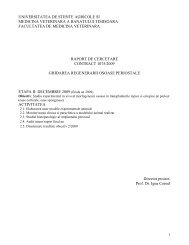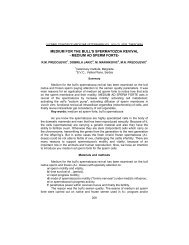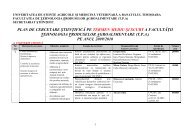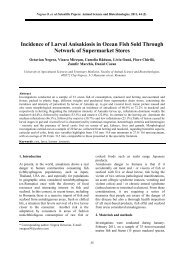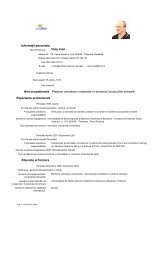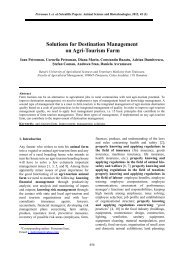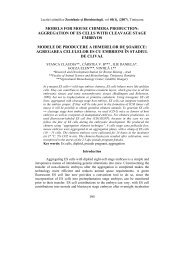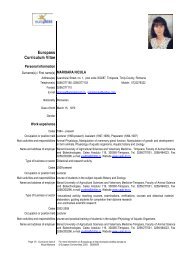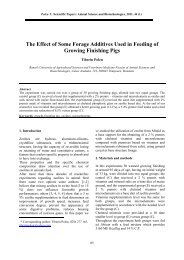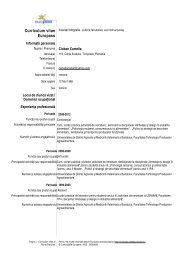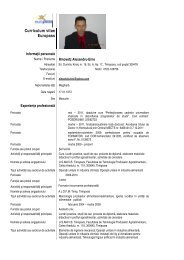journal of linguistic studies
journal of linguistic studies
journal of linguistic studies
Create successful ePaper yourself
Turn your PDF publications into a flip-book with our unique Google optimized e-Paper software.
merely an opportunity to discuss and explain (in English) what the differences were, the<br />
result <strong>of</strong> which was communication in English.<br />
The purpose <strong>of</strong> the ILEC course is to prepare the learners for taking the Cambridge<br />
ILEC exam that is recognised by leading European associations <strong>of</strong> lawyers so that they<br />
can either gain qualification for international legal work or legal study at university level<br />
in the context <strong>of</strong> movability within the Bologna reform. As the ILEC exam tests all four<br />
language skills the course aims at developing these skills through specified strategies.<br />
3.1. LISTENING<br />
One <strong>of</strong> the most important skills for legal pr<strong>of</strong>essionals is listening as their pr<strong>of</strong>ession<br />
is related to communicating in real life situations. Their interpretations <strong>of</strong> the cases will<br />
depend on their listening skill. This skill is important for law students as well. When we<br />
are listening we already have a concept in mind what we are going to hear, either an<br />
answer to our question or a piece <strong>of</strong> information relevant to the topic we are discussing.<br />
They used expectations or/and context. Every listening exercise was introduced by<br />
instructions that establish the context and learners could use their expectations to help<br />
them listen and comprehend what they hear.<br />
Some <strong>of</strong> the difficulties that learners experienced were becoming accustomed to the<br />
voices and accents <strong>of</strong> the speakers they were listening to for the first time. Nevertheless,<br />
they were aware <strong>of</strong> the purpose <strong>of</strong> the listening and could focus on the main points by<br />
selecting the most important information, ignore unknown words or phrases irrelevant for<br />
completing the listening comprehension tasks which included multiple choice questions,<br />
completion <strong>of</strong> sentences or making a note <strong>of</strong> information they listened to etc.<br />
The learners were encouraged to develop their listening skills out <strong>of</strong> course by<br />
listening to English broadcast media, surf the Internet websites <strong>of</strong>fering audio contents<br />
(e.g. BBC at http://www.bbc.co.uk/radio/), attending international conferences and<br />
actively taking notes on interesting vocabulary and phrases.<br />
3.2. SPEAKING<br />
General speaking skills were developed and improved during the course through<br />
different activities such as doing role plays, delivering short presentations and 2-minute<br />
speeches, arguing pros and cons, debates, asking opinions on familiar or new topics,<br />
practising pronunciation and stress by demonstrating patterns (falling and rising<br />
intonation indicating their pragmatic meanings). Moreover, they practised interactive<br />
communication like appropriate responding and starting the dialogue, taking part and<br />
turn-taking in order to communicate the meaning.<br />
In this context the learners did not feel very much reluctant or embarrassed to<br />
communicate with one another since they were told the purpose <strong>of</strong> the exercises.<br />
Additionally, the learners were taught how to manage their utterances (discourse<br />
coherence, relevance and length) by way <strong>of</strong> link words and connectors.<br />
3.3. READING<br />
The ILEC texts require reading abilities <strong>of</strong> different kinds from general understanding<br />
to understanding fine details, attitudes and opinions. The learners were taught to apply<br />
reading strategies from paragraphs to whole texts (scanning, skimming or mixed,<br />
54



